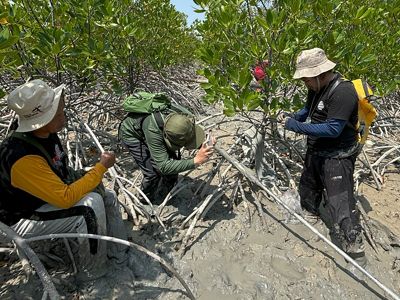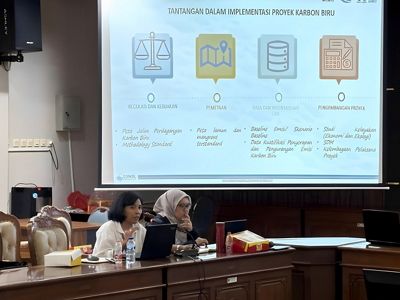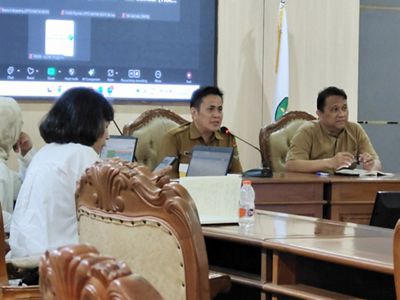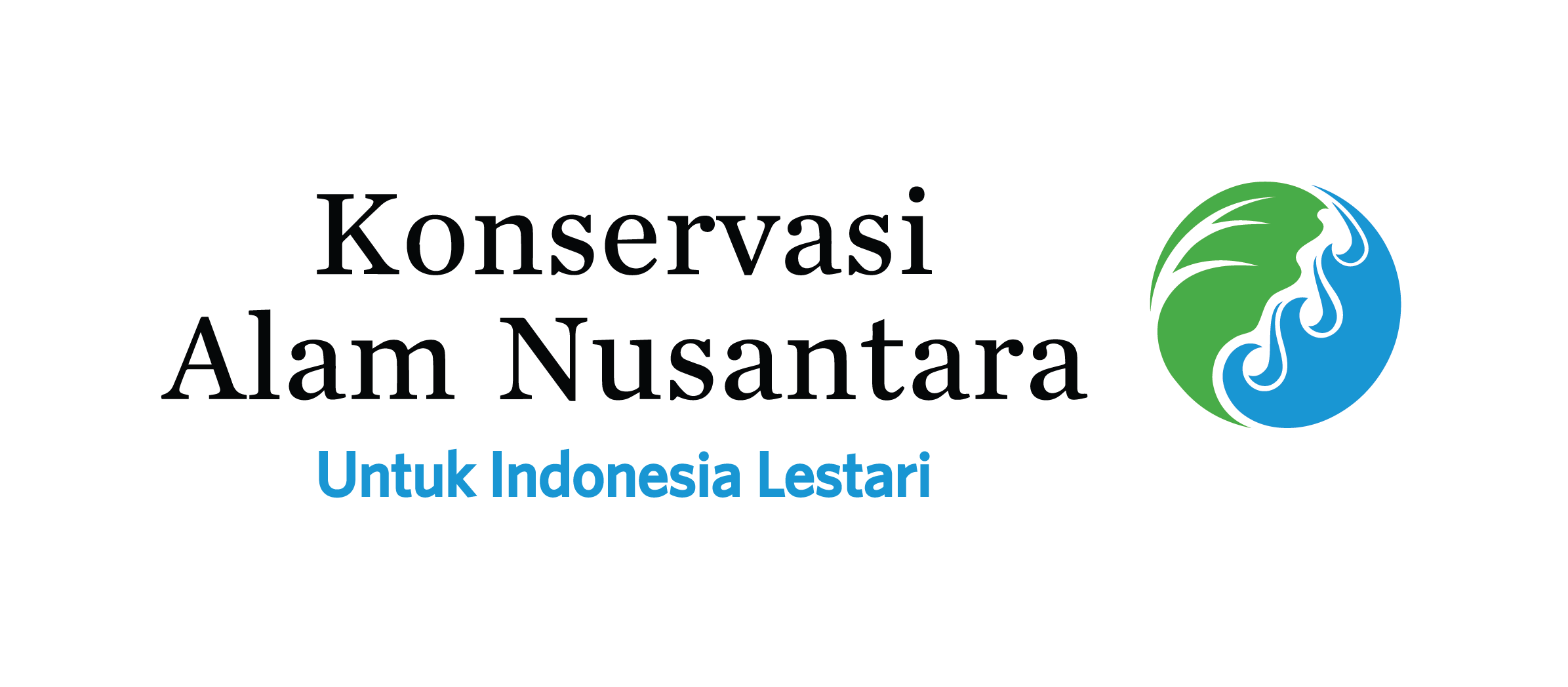Unveiling the Potential of Blue Carbon in the Coastal Conservation Area and the Small Islands of the Derawan Archipelago and Surrounding Waters

Media Contacts
-
Adia Puja Pradana
Communications Specialist Ocean Program YKAN
Yayasan Konservasi Alam Nusantara
Email: adia.pradana@ykan.or.id
The Ministry of Marine Affairs and Fisheries (KKP), the East Kalimantan Provincial Marine and Fisheries Office (DKP), and Yayasan Konservasi Alam Nusantara (YKAN), through the Koralestari Program, held a Workshop on the Initial Feasibility Study Results of the Economic Value of Blue Carbon in the Coastal Conservation Area and Small Islands of the Derawan Archipelago and Surrounding Waters (KKP3K-KDPS). This initiative is part of a shared commitment to protect coastal ecosystems and support climate change mitigation efforts by preserving blue carbon ecosystems. The event took place on May 20, 2025, in Samarinda City, East Kalimantan Province.
KKP3K-KDPS, located in the Sulu-Sulawesi Seascape with a total area of 285,548.95 hectares, is rich in marine and coastal biodiversity. This area is known as a migration route for important marine biota and a region of high economic fishery value. It also hosts 17,704 hectares of mangrove forests and 1,808 hectares of seagrass beds. The area is home to at least 397 species, including 162 species classified as High Conservation Value (HCV), such as birds, mammals, coral reefs, and endangered fish. Considering these facts, it is crucial to manage this area through partnerships and sustainable practices.

One critical aspect to be studied is the potential of blue carbon. Blue carbon refers to carbon stored in coastal and marine ecosystems, such as mangroves and seagrass beds. To support conservation financing, YKAN, together with its partners, conducted an initial feasibility study to assess the economic value potential of carbon based on existing standards. The study results indicate that the blue carbon ecosystem potential in KKP3K-KDPS holds an economic value that can be utilized for sustainable area management.
The study shows that actions through protection and rehabilitation efforts of blue carbon in KKP3K-KDPS have the potential to reduce emissions by 72,505 tons of CO2e annually. The economic value of carbon can be leveraged to manage areas sustainably.
“KKP3K-KDPS holds significant value for climate change mitigation and biodiversity conservation. This initiative reflects our commitment to sustainable coastal management through innovation, science, and collaboration. Integrated and coordinated management of both green and blue carbon sectors is crucial. Therefore, based on the study results, the utilization of blue carbon should lead to strategies and actions for climate change mitigation in East Kalimantan Province,” said Irhan Hukmaidy, Head of the East Kalimantan Provincial Marine and Fisheries Office.
“We appreciate YKAN and its partners for conducting this study, which serves as a database for carbon potential, biodiversity, and strategies for developing the economic value of blue carbon in the future. We hope the blue carbon ecosystem remains preserved, particularly protecting coastal areas, serving as buffer zones, and preventing erosion and natural disasters in East Kalimantan Province. Collaborative efforts can yield the best outcomes in developing and utilizing blue carbon economics for climate change mitigation and generating economic value for surrounding communities,” Irhan added.
Irfan further explained that to support the sustainable management of KKP3K-KDPS, the Regional Technical Implementation Unit (UPTD), which serves as the management unit for KKP3K-KDPS, is currently implementing the Regional Public Service Agency Financial Management Pattern (PPK-BLUD). It is hoped that the blue carbon potential will also support the management unit in achieving sustainable financing goals for the conservation and management of mangrove and wetland ecosystems.

“The study results conducted by YKAN and its partners form the basis for good planning. The development plan for the blue carbon project in KKP3K-KDPS aligns with government targets related to the blue economy and the 2030 Nationally Determined Contribution (NDC). This provides legal legitimacy for developing blue carbon schemes based on conservation areas. Additionally, KKP3K-KDPS's position as an ecosystem with high biodiversity potential can generate premium economic value from carbon. However, it is essential to ensure that blue carbon utilization activities do not diminish the conservation value of the area, but rather strengthen it through mangrove and seagrass restoration. Efforts should also encourage carbon benefits to support conservation funding and coastal community empowerment as part of benefit-sharing,” said Leny Dwihastuty from the Directorate of Ecosystem Conservation, KKP, at the event.
Support for Sustainability
Blue carbon is a valuable asset possessed by KKP3K-KDPS. With an integrated biodiversity conservation strategy supported by stakeholder collaboration, long-term ecological and socio-economic benefits can be achieved.

“This is part of our commitment to supporting the East Kalimantan Provincial Government and the Berau Regency Government in promoting sustainable management of KKP3K-KDPS by emphasizing science and partnerships. Collaborative efforts are key to the successful management of KKP3K-KDPS,” said Niel Makinuddin, Senior Manager of YKAN East Kalimantan Province.
“These efforts are expected to improve ecosystem conditions, reduce carbon emissions, and strengthen community livelihoods, particularly in villages dependent on mangrove ecosystems. Through the implementation of the Koralestari Program supported by the Global Fund for Coral Reefs (GFCR), YKAN is currently working to support the emergence of innovative funding sources for coral reef conservation and restoration in Indonesia, relying on independent funding, including from blue carbon potential,” concluded Muhammad Ilman, Director of YKAN Marine Program.
Yayasan Konservasi Alam Nusantara (YKAN) is a scientific-based non-profit organization that has been present in Indonesia since 2014. With the mission of protecting lands and waters as life support systems, we provide innovative solutions to realize the harmony of nature and humans through effective natural resource management, prioritizing a non-confrontational approach, and building a network of partnerships with all stakeholders for a sustainable Indonesia. For more information, visit ykan.or.id.

